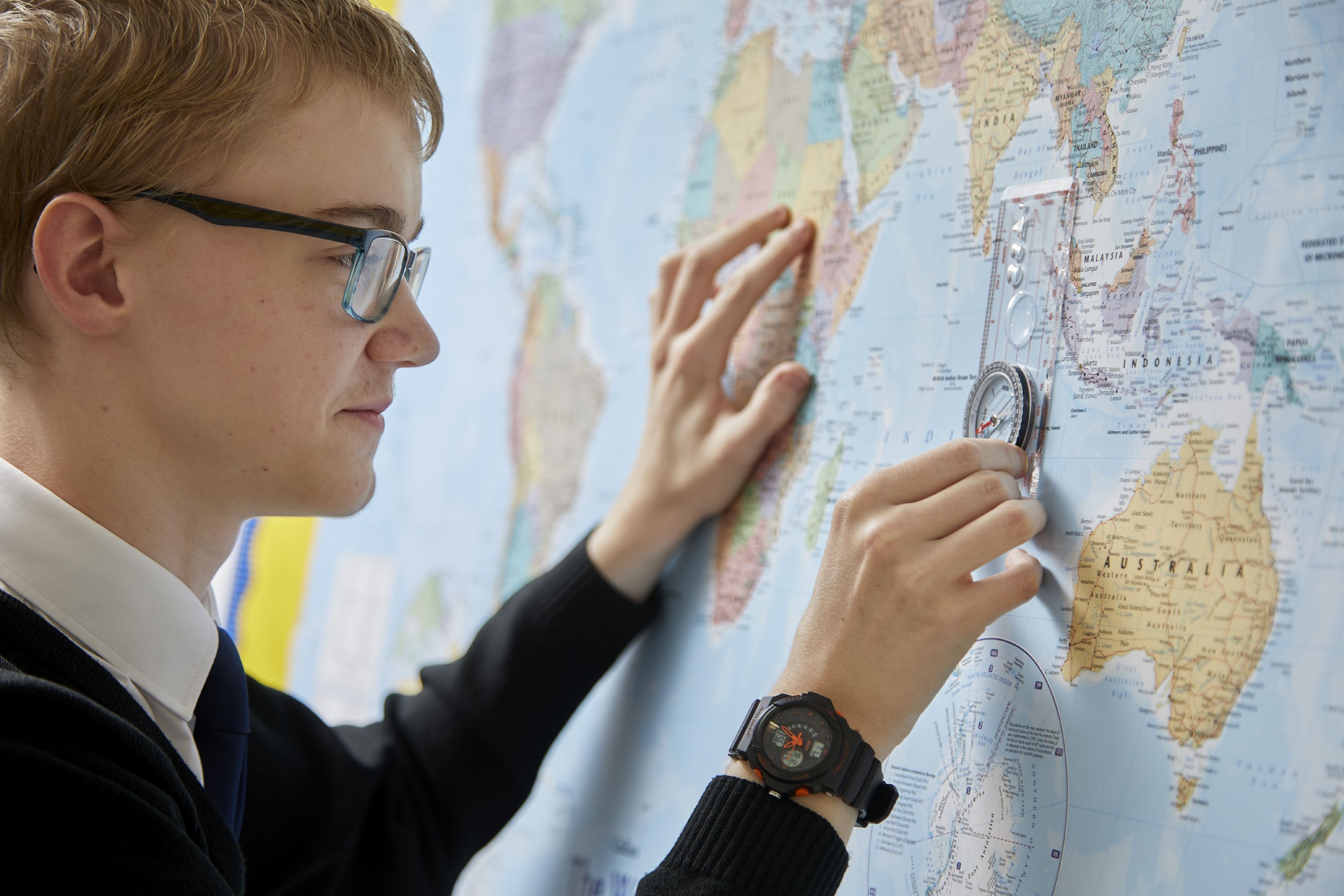Geography
KEY STAGE 3 CURRICULUM OUTLINE
The Geography curriculum provides students with the opportunity to study a range of locations around the world, to understand how our landscape has been shaped and the influence that humans have on the world around us.
At Key Stage 3 students will study a range of topics based on a key question.
In Year 7 these are:
-
Is Hull a City of Hope or Despair?
-
Equatorial Africa: Will they ever close the development gap?
-
Is the USA really the Land of Opportunity?
In Year 8 these are:
-
Is Asia’s Success Limitless?
-
Is South America the Poor Relation of the Americas?
-
Can anywhere become inhabitable?
In Year 9 these are:
-
Contemporary Issues in Geography
-
India
-
Physical Features of the UK
KEY STAGE 4 CURRICULUM OUTLINE
At Key Stage 4 students opt to study Geography. They will study 6 key areas which cover a range of Physical and Human Geography. This is done over three hours per week.
-
The Challenge of Natural Hazards – Pupils will study tectonic and weather hazards in the topic. Pupils will look at plate tectonics and the theory around this. They will also look at two earthquakes from a rich and poor country and investigate reasons why impacts and responses differ between the two. Students will also look at different weather hazards and study a tropical storm. With climate change gaining more media attention, this will also be looked at such as causes, impacts and what we can do to deal with it.
-
The Living World – This topic looks at ecosystems with a main focus on tropical rainforests where pupils will investigate plant and animal adaptations as well as deforestation and its impacts. Pupils will also look at a cold environment such as Alaska or Svalbard and look at plant and animal adaptation as well as opportunities and challenges of living in these places.
-
Physical Landscapes in the UK – This is an optional section of the paper and pupils will learn about the rivers and coasts modules. Rivers include erosional processes, landforms such as waterfalls as well as flood case studies from the UK. In the coastal topic pupils will learn about erosion, deposition and the different landforms made by the sea.
-
Urban Issues and Challenges – Pupils will learn about two places of contrasting wealth, Lagos in Nigeria and London in the UK. Pupils will look at opportunities and challenges in both places such as housing, water and sanitation and transport.
-
The Changing Economic World – This topic looks at why some of the world are developed and why some are not. Pupils will learn about the different ways that we can measure development and how these measurements aren’t always accurate. Pupils will then look at the different things that can be done to try and increase the development of a country.
-
The Challenge of Resource Management – This section covers a general overview of global resources such as food, water and energy. It will look at how some countries have plenty of these whilst others may not. This section allows for some optionality, so we then look at the water option in more detail. This covers water supplies around the world and reasons for differences. We then look at the impacts of water shortages around the world and what can be done to increase water supplies.
How are you assessed at GCSE?
There are three exam papers. Paper 1 and Paper 2 are both 90 minute exams on the topics above. Paper 3 covers fieldwork (see below) as well as questions on a topic which is pre-released 3 months before the exam.
In addition, students will take part in fieldwork in contrasting environments. This will be based around one of the six themes listed above and will be assessed on the third exam paper.
'Geography is a subject that is constantly changing and it is one that everybody can relate to all of the time.' Mrs Rackley
FUTURE OPPORTUNITIES AND PATHWAYS POST 16
-
A Level Geography and beyond to University.
-
The career possibilities include Meteorology, hazard & disaster management, urban planning, travel & tourism, GIS (eg. Google maps), International Relations (Foreign Office), education.
EXTRA CURRICULAR OPPORTUNITIES
As a faculty, we currently offer opportunities to carry out extra studies with our after school success zones. In addition we run a yearly, two day, trip for Year 8 to the Netherlands. This is an area we are looking to develop further in future so keep an eye out for more trips and events to come.

